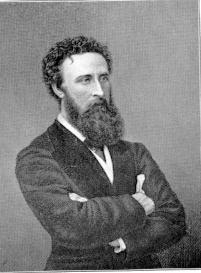Lord Lytton (1876-80)
2. Passing of the Royal Title Act of 1876 and the assumption of the title - Empress of India (Qaiser-i-hind) by Queen Victoria.
3. Holding of Delhi Durbar in 1877, to commemorate the Golden Jubilee of assumption of the throne by Queen Victoria.It inspired the development of nationalistic feelings amongst the educated middle class in India because the expensive Durbar was held at a time when the country was suffering from a severe famine.
4. The Ramosi uprisings led by Vaudev Balwant Phadke in Maharashtra (1877-87) began. It was mainly caused by the failure of the government to take up anti-famine measures.
5. Passing of the Vernacular Press Act of 1878. It empowered a magistrate to call upon the printer and publisher of any newspaper published in an Indian language to enter into an undertaking not to publish any news which would create antipathy against the government.
6. Passing of the Arms Act of 1878. It made it mandatory for the Indians to acquire license for arms.
7. Lowering of the maximum age from 21 years to 19 years for the civil services examination, an attempt to prevent Indians from entering civil services.
8. Lytton also proposed Statutory Civil Services. It enabled the government to fill 1/6 of the vacancies by nomination from among the members of Indian aristocratic families. He also evolved a scholarship scheme for the selected candidates in 1878.
9. Appointment of first Famine Commission under Sir Richard Strachey.
10. Policy of masterly inactivity towards Afghanistan was re-placed by forward policy. Second Anglo-Afghan war (1878-80). The Treaty of Gandamak was concluded in 1879. But the English victory proved to be short lived. The British Resident in Kabul was murdered. The opposition of the local tribes grew stronger. Lytton’s Afghan policy was an utter failure.
11. The famine of 1876-78.
12. Resigned in 1880 when Disraeli’s Conservative Party was defeated in Britain by Gladston’s Liberal Party.


No comments:
Post a Comment